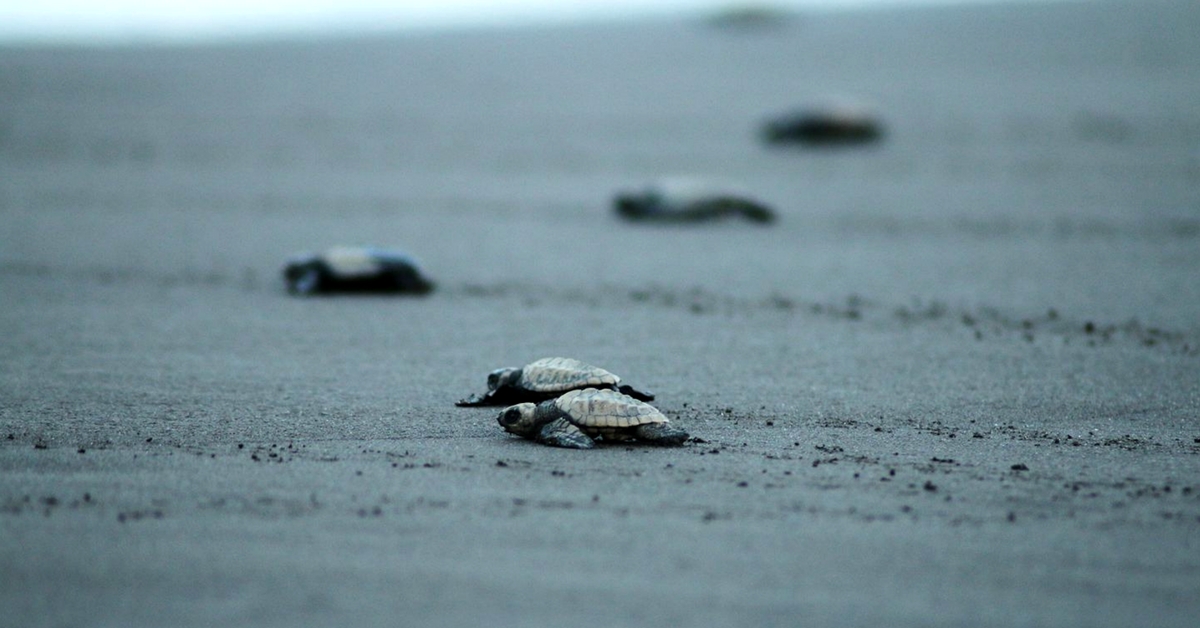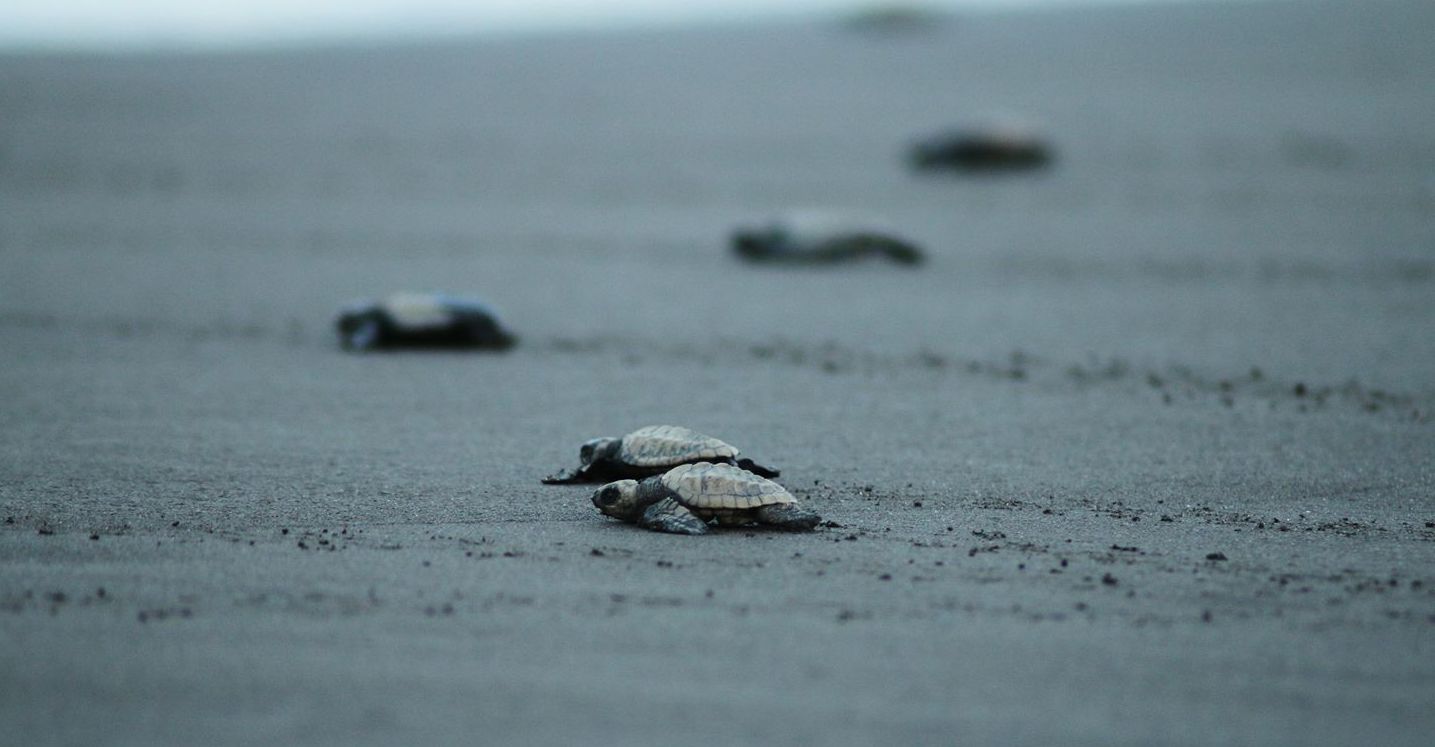Cuddalore Fishermen’s Unique Crusade A Lifeline For Fast-Vanishing Turtles!
Between the months of January and March, which encompass the breeding period of the turtles, these folks walk along the Devanampattinam coast at 3 a.m. with torchlights to spot turtle tracks.

Every year, a mass congregation of Olive Ridley turtles turns up on the Bay of Bengal side of the Indian coastline to mate and nest. Sadly, the sea-dwelling reptiles are among the most severely endangered species in the world, mostly because of fishing net fatalities and predator attacks.
It is believed that, during the breeding season, at least 300-350 adult turtles never make it back to the shore from the Cuddalore coast in Tamil Nadu alone every year, after getting entangled in fishing nets.
Moreover, most of the turtle eggs laid on the shore end up being hunted by predators, which makes the scenario extremely grim when we take the fast-dwindling numbers of Olive Ridley turtles into account.
However, all is not lost, as a group of fishermen from the coastal villages in the vicinity, are doing everything to ensure the safe arrival and departure of adult turtles, while also safeguarding the eggs from predators.

Lead by Mezhalaichelvan, better known as Chella, these fisher folks have voluntarily taken the responsibility of providing a safe haven to the sea turtles upon their shoulders and don’t mind losing their sleep during the breeding season if it can help to save these beings.
Between the months of January and March, which encompass the breeding period of the turtles, Chella and his friends walk along the Devanampattinam coast at 3 a.m. with torchlights and are quite adept in spotting turtle tracks—a skill which is of vital importance to detect the eggs that are laid inside a pit dug in the shore by the mothers.
You may also like: DRDO Goes the Extra Mile to Give the Olive Ridley Turtles a Bright Future
Three of the best trackers in the fishermen group are Prabhu, Govind, and Prakash, who collect the spotted eggs in a bag and take these to the special incubators assembled by the forest department in Rasapettai village. According to The New Indian Express, these men collect close to 300 eggs per day on an average.
To ensure that no harm falls upon the eggs, a protective fence made of bamboo covers the hatcheries where the eggs are buried. Following an incubation period usually ranging between 45-51 days, the eggs hatch and the baby turtles are then taken back to the coast by the group and released into the sea.
Through this intervention, Chella and his friends are able to save a minimum of 50,000 eggs on a yearly basis, and give them a chance to set course for a life of their own.
Like this story? Or have something to share?
Write to us: [email protected]
Connect with us on Facebook and Twitter.
NEW: Click here to get positive news on WhatsApp!
If you found our stories insightful, informative, or even just enjoyable, we invite you to consider making a voluntary payment to support the work we do at The Better India. Your contribution helps us continue producing quality content that educates, inspires, and drives positive change.
Choose one of the payment options below for your contribution-
By paying for the stories you value, you directly contribute to sustaining our efforts focused on making a difference in the world. Together, let’s ensure that impactful stories continue to be told and shared, enriching lives and communities alike.
Thank you for your support. Here are some frequently asked questions you might find helpful to know why you are contributing?


This story made me
-
97
-
121
-
89
-
167











